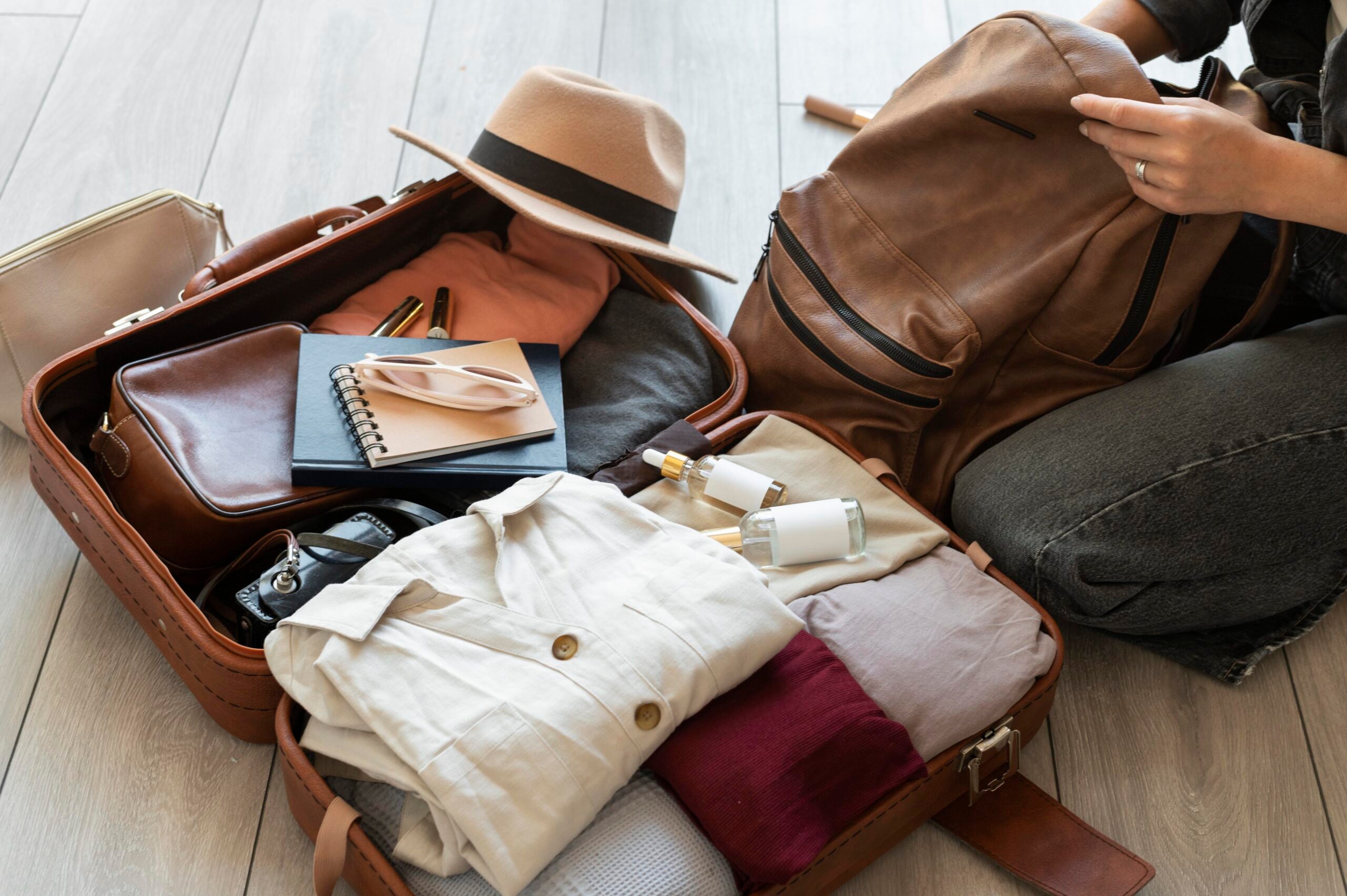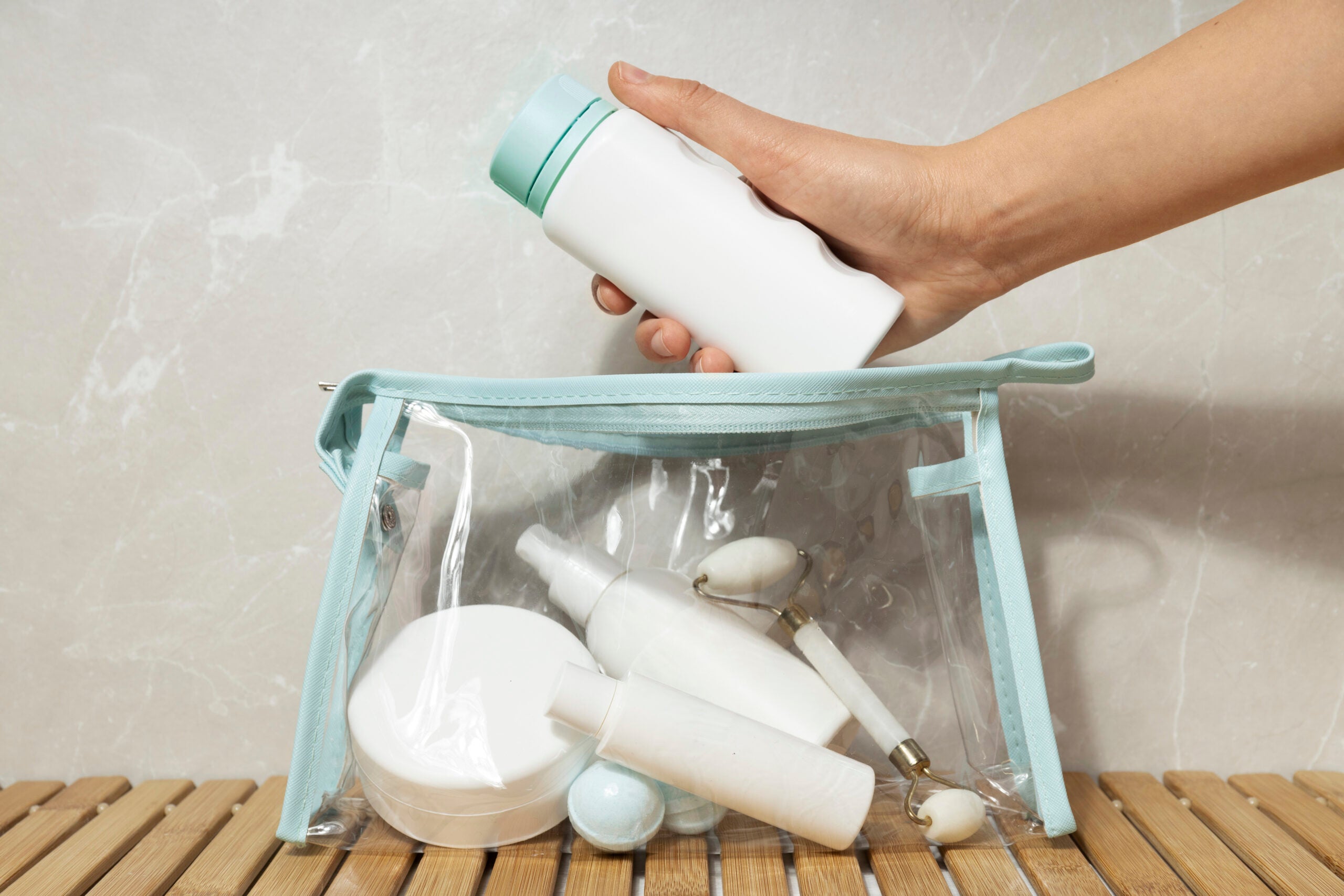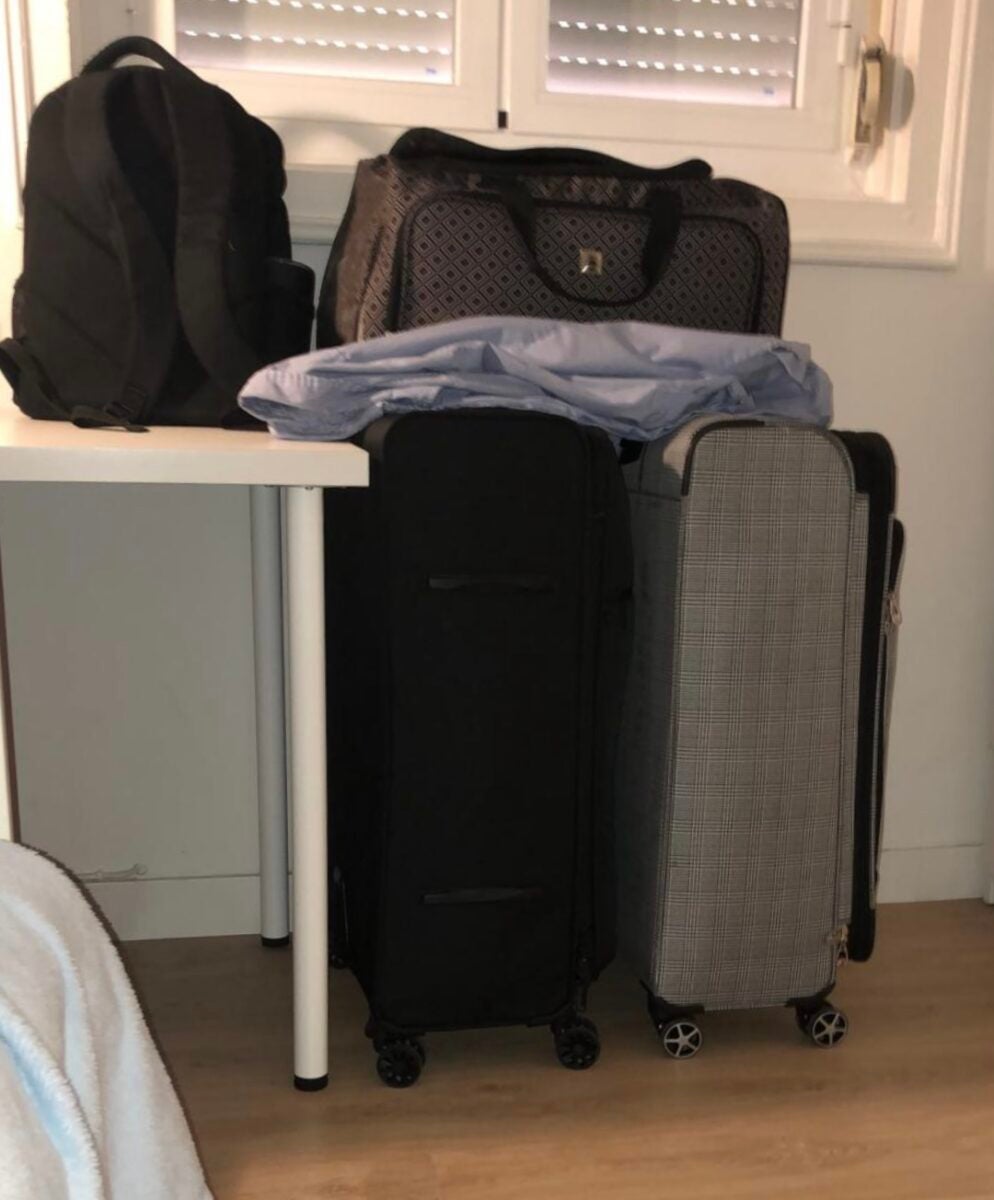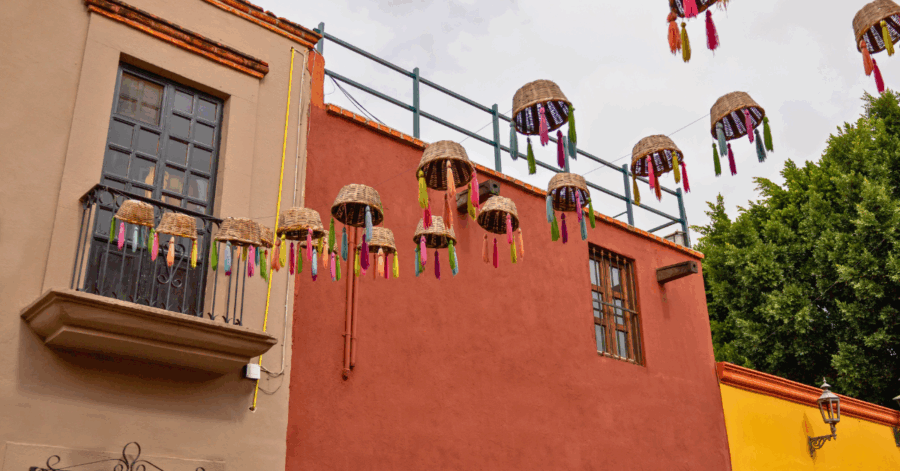
When you are studying abroad for an entire semester, you are bound to encounter a wide range of weather conditions. Especially in places with cold winters and warm summers, students need to bring clothes that are practical in any and all temperatures.
Bring a tank top, a t-shirt, a light long-sleeved shirt, a warm sweater, and a heavy jacket. The more items you can mix and match to reuse for different weather, the less space you’ll need in your bag to fit your wardrobe.
Pro Tip: Wear your heaviest clothes on the plane. It may look a little silly to wear a warm coat during the wrong season, but it will save you some packing space!

While you may not be able to find all your favorite toiletries abroad, many countries will have the same or similar brands to what you are used to.
Before you pack, do a little research about what options are available abroad. If your host country has similar products, you can save a lot of space in your suitcase by buying the products there. It also reduces the risk of toiletries leaking in your bag during the flight!
Part of studying abroad is sharing cultures between friends — what better way to do so than sharing a little piece of home? They can be a great icebreaker when trying to make new international friends or cute gifts to celebrate a local holiday or birthday.
Try to find items that you can only get in the U.S., or at least that are unavailable in your host country. Popular gifts I have seen are Sour Patch Kids, Swedish Fish, UT stickers or pins, anything Buc-ee’s-branded, and even U.S. coins.
Pro Tip: Don’t bring chocolate. The rest of the world tends to have better-quality chocolate than the U.S., so it just ends up being a tad disappointing.
Shoes can take up a LOT OF SPACE in your bag — plus, they’re oddly shaped and have little give. I know you want to dress to impress, but when it comes to shoes, it is best to just stick to the basics: an everyday shoe, a formal shoe, and an exercise shoe.
Depending on where you’re going or what your accommodations are like, you might also want to mix a type of shoe that accommodates the weather: a warm shoe for the cold, a sandal for the heat, a waterproof shoe for a rainy climate, or a shower shoe for dorms/accommodations with a shared bathroom.
Not only are reusable water bottles and travelers’ coffee mugs good for keeping you hydrated throughout your long flight (just make sure to empty them before going through security to refill after), but they’re also a great way to stay hydrated while exploring your new home for the semester.
Additionally, many countries have a very different idea of how to drink coffee than we do in the U.S. For example, when I went to Spain, coffee was meant to be drunk slowly, sitting down, and in small portions.
Unfortunately for me, a student who requires an inordinate amount of coffee to function, this was one part of Spanish culture I could not assimilate to. Thus, bringing my traveler’s mug from home was a lifesaver when I needed a large cup of joe to keep me at attention for my 8 a.m. class.
I promise that anywhere Education Abroad sends you, there will be kitchenware available to purchase once you get to your host country. Bringing kitchen supplies will only weigh down your suitcase and waste valuable space.
At the end of the semester, you can leave your kitchenware with local friends or donate them to a local shelter to make sure the items are put to good use after you leave the country.

(I came to Madrid with only one suitcase.)
You will inevitably want to bring back souvenirs from your trip! You’ll always want to bring back items tied to cherished memories, gifts for friends or family, or those new favorite snacks you can’t find at home.
Any shopping you do over the semester (and I promise, you will be shopping!) will require more space in your bag coming home than going to your host country.
DON’T: Bring your own bedding
Bedding is far too bulky to pack when you go abroad. Most people I knew going abroad bought a pillow, sheets, and a blanket while away to save on space. Like the kitchenware and other items bought in the host country, you can leave them with a local friend or donate them at the end of your time in the host country.
DO: Pack a diary, scrapbook, or memento holder

Studying abroad, as cheesy as it sounds, is truly a life-changing experience. If you are like me, you want to document every little detail, so you never forget.
From museum tickets to friends’ doodles, a centralized place to keep mementos is a great way to collect your fondest memories from your time abroad.
Also, it doesn’t have to follow a specific format—you can get creative with it! One thing I was really happy about bringing was my personal cookbook for all my international friends to share their favorite recipes from their culture.
DON’T: Bring lots of books or supplies
Notebooks and binders can be heavy, bulky, and cumbersome. I recommend taking most of your notes digitally or using a multi-subject notebook that covers the content for all your classes.
Also (although typing this as a book lover severely hurts), don’t take too many books with you. Luckily, there are libraries almost everywhere in the world, and most of them have at least a few books in English.
Also, before you leave, sign up for an Austin Public Library card! This card grants you free access to Libby and Hoopla, digital library apps that let you read or listen to your favorite books on your phone or laptop, so you don’t use too much space or weight packing physical books.
Zoe Caruso is an Education Abroad Peer Mentor providing support to students interested in studying abroad. Learn about this position and its services on the Peer Mentors Program webpage.





